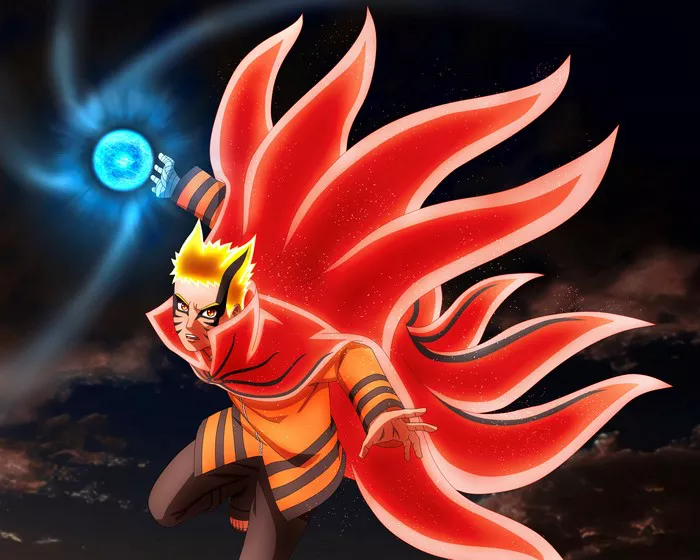In the vast and intricate world of anime and manga, character names often carry profound meaning, reflecting their heritage, aspirations, and personal journeys. One such character is Naruto Uzumaki from Masashi Kishimoto’s acclaimed series “Naruto” and its sequel “Naruto: Shippuden.” Naruto, the titular protagonist, bears the last name “Uzumaki” rather than his father’s name, “Namikaze,” prompting curiosity and speculation among fans. This article delves into the reasons why didn’t naruto take his dad’s last name and the significance it holds in shaping his identity and narrative arc.
Understanding Naruto’s Name and Heritage
Naruto Uzumaki’s name is a blend of two distinct elements: “Naruto,” derived from the whirlpools that occur in the Naruto Strait in Japan, and “Uzumaki,” which means “spiral” or “whirlpool” in Japanese. The choice of “Uzumaki” as Naruto’s last name is significant as it ties him to the Uzumaki clan, a powerful lineage known for their vitality, resilience, and proficiency in sealing techniques. The Uzumaki clan’s symbol, the spiral, symbolizes continuous growth and evolution, mirroring Naruto’s journey from an orphaned outcast to a revered hero.
The Mystery of Naruto’s Parentage
Throughout much of the early series, Naruto’s parentage remains shrouded in mystery. He grows up without knowing his parents, believing them to have died when he was a baby. It isn’t until later in the series that Naruto learns about his father, Minato Namikaze, the Fourth Hokage, and his mother, Kushina Uzumaki, a former jinchuriki of the Nine-Tails.
Bold Decision: Choosing Uzumaki Over Namikaze
One of the most intriguing aspects of Naruto’s name is his decision to retain “Uzumaki” rather than adopting “Namikaze” after learning about his father. Here are some key factors that likely influenced this decision:
1. Connection to the Uzumaki Clan
Naruto’s affinity with the Uzumaki clan goes beyond just a name. It represents a deeper connection to his mother, Kushina Uzumaki, who imparted upon him the values of perseverance, love, and strength. Kushina’s influence on Naruto is profound, shaping his personality and guiding his principles throughout his life. By embracing the Uzumaki name, Naruto honors his mother’s legacy and carries forward the resilience and indomitable spirit of the Uzumaki clan.
See Also: WHY DOES KAKASHI WEAR THE UZUMAKI SYMBOL?
2. Identity and Recognition
Throughout Naruto’s childhood, he grappled with feelings of loneliness, rejection, and inadequacy stemming from being the host of the Nine-Tails. His journey to be acknowledged by others and to prove himself as a capable ninja is central to his character arc. Embracing the Uzumaki name symbolizes Naruto’s acceptance of his identity and lineage, affirming that his worth is not defined solely by his father’s prestigious title as the Fourth Hokage but by his own actions and character.
3. Legacy of the Hokage
Minato Namikaze, Naruto’s father, held the esteemed position of the Fourth Hokage, revered as a hero who sacrificed his life to protect the village. While Naruto deeply respects and admires his father, he forges his own path to becoming Hokage. By choosing to identify as Naruto Uzumaki, he emphasizes his commitment to surpassing his father’s legacy through his own merits and dedication. Naruto’s journey to becoming Hokage is not merely about fulfilling his father’s dream but also about realizing his own potential and leading the village with compassion and strength.
4. Symbolism and Narrative Continuity
In storytelling, names often carry symbolic weight, reflecting a character’s essence and journey. Naruto Uzumaki’s name embodies themes of resilience, growth, and the cyclical nature of life. The spiral motif associated with the Uzumaki clan represents continuous evolution and the ability to overcome adversity. By retaining the Uzumaki name, Naruto’s narrative remains interconnected with the legacy of his clan, reinforcing his role as a unifying force in the shinobi world.
Conclusion
In conclusion, Naruto Uzumaki’s decision to keep his mother’s last name, “Uzumaki,” instead of adopting his father’s name, “Namikaze,” is deeply rooted in his identity, values, and personal journey. By embracing the Uzumaki name, Naruto honors his mother’s heritage, acknowledges his connection to the resilient Uzumaki clan, and asserts his individuality in pursuit of his dream to become Hokage. His name serves as a testament to his strength, determination, and unwavering belief in creating a brighter future for the shinobi world.
Through Naruto’s story, we witness the transformative power of identity and the significance of familial bonds in shaping one’s destiny. His journey inspires us to embrace our heritage, uphold our values, and strive towards our dreams with unwavering resolve. Naruto Uzumaki, the hero of the Hidden Leaf Village, exemplifies the profound impact of a name and the enduring legacy it carries in the hearts of fans worldwide.

